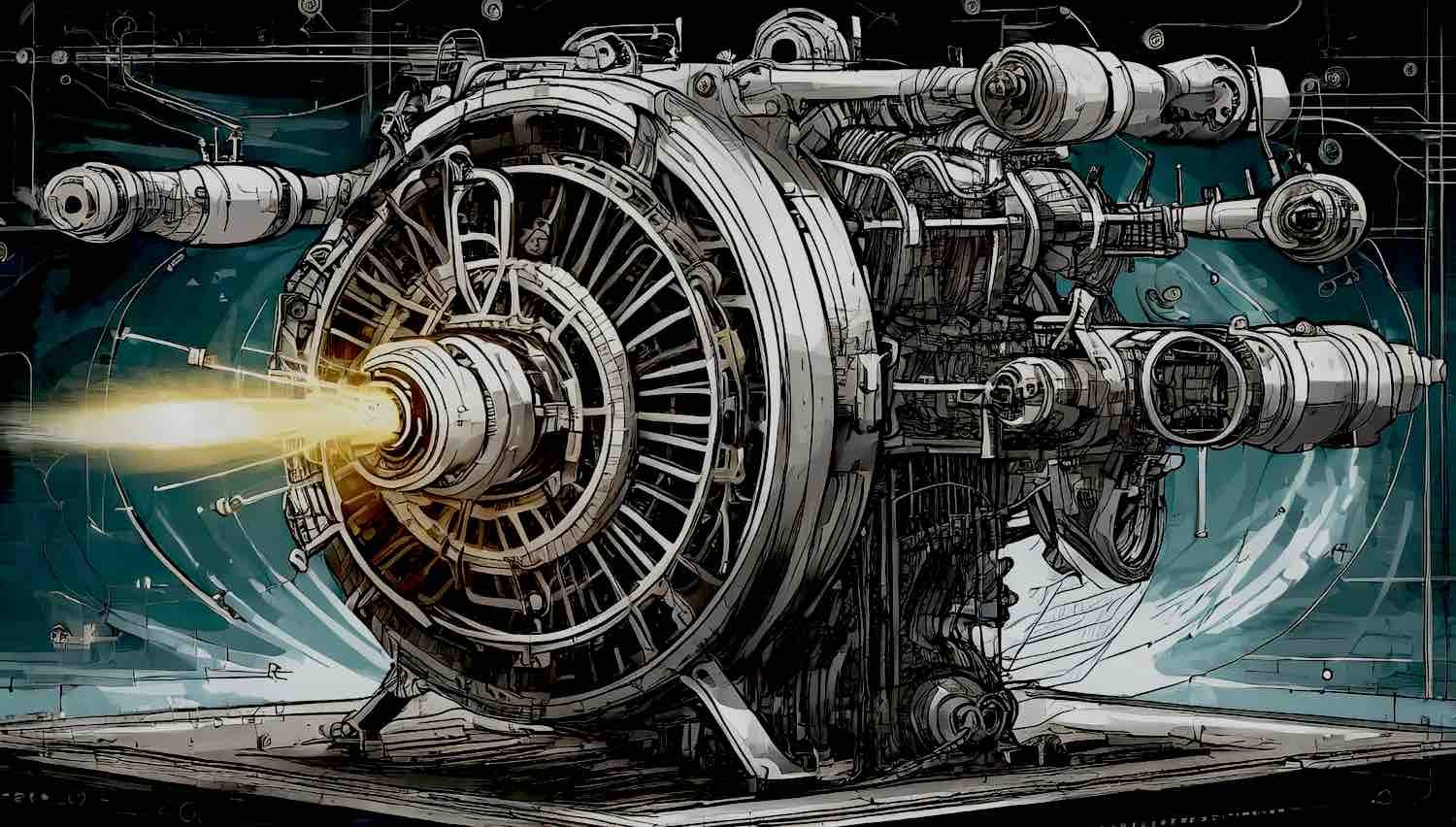- cross-posted to:
- [email protected]
- cross-posted to:
- [email protected]
Any time I hear claims that involve hitherto unknown laws of Physics I’m 99.99% sure I’m dealing with BS - but then again, some day someone will probably genuinely pull off such a discovery.
I’m gonna go out on a limb here and guess that NASA has physicists that understand how and why this thing works, and the article title is just bullshit.
deleted by creator
Are you sure? What you say is true of the EM drive, but this looks like it’s a completely different technology. As far as the article is written, it doesn’t sound like microwaves are used at all.
What has me skeptical is that they say the device produces enough thrust to counteract its own mass, which would be revolutionary. Why are we not reading about this all over the news?
Because it’s a load of shite mostly.
Ion propulsion.
This can’t be ion propulsion because ion propulsion involves a propellant – the ions.
deleted by creator
are you telling me this sucker runs on midichlorians?
deleted by creator
How many giggawatts? Last one didn’t do anything and we fed it 1.20.
deleted by creator
It’s very likely, but it’s almost certainly going to involve an extreme thing we can barely measure. The whole reason physics is stuck where it is is that all the things we have access to are described perfectly by the system we have, even if it’s not fully self-consistent.
I mean, if there was any I would trust on physics NASA is pretty high up there
This wasn’t NASA, though. This was a sci-fi writer, writing about a putative claim by someone who got paid by NASA at some point in the past.
Ditto for the couple ex-CIA guys that claim there’s alien dissections or whatever. Big organizations inevitably employ all sorts.

Did nobody else see this was written by a FUCKING SCIENCE FICTION AUTHOR?
The flags are there, and they are red.
That’s not unusual actually.
Sci Fi remains sci Fi until it becomes a reality 🦅🦅🦅
They literally are claiming they found a new fundamental force.
It’s bullshit. He’s a liar and “the debrief” should be goddamned ashamed of publishing this tripe.
[…] Another unusual result from their tests was that sometimes the tested devices did not require a constant input of electrical charge to maintain their thrust. Given that the device already appears to violate the known laws of physics by creating thrust without propellant, this result even stumped Dr. Buhler and his team.
Hold up a minute, not only does this thing generate momentum out of
essentiallynowhere“a new fundamental force”, it is also able to generate thrust without a constant supply of energy?If I told you my car could run without petrol, you’d call me a liar, but apparently this didn’t ring alarm bells to them?
It’s just an intern fucking with the scientist.
“You sure there isn’t any propellant in there?”
“Yes, professor, I’m positive! snicker”
Ain’t got no gas in it.
Mmm-hmm.
“Your car CAN run without petrol. Liquify dinosaurs? You people are insane” - Fred Flintstone
I get the skepticism in the comments here, but having finished the article, the team seems as perplexed as the rest of us as to why/what is happening here, and seems very interested in getting outside scientists and companies to try and figure it out. Basically they don’t seem to be the standard vaporware sellers playbook, but of course, who knows, most things like this are total bullshit.
My fake conspiracy joke explanation: all those physics breaking lozenge ufos that have been making the rounds the last couple years are some lizard man tech we’ve had all along, and this is a half assed attempt to introduce the tech publicly without having to explain they had it already. OR similar vein, but the super-dimensional tic-tac operators (either aliens or multi-dimensional humans from the future like in interstellar) are trying to share this miracle tech with us and this is the avenue they chose.
I’m not merely sceptical I know this is bunk. Not because they’re claiming they accidentally stumbled onto something akin to cold fusion, or the incredible claim that they’ve found a new fundamental force that everyone else completely missed. No I know it’s bunk because they’re already talking to the press about and releasing statements with their claims before the paper is ready.
Every credible organisation if they stumbled on something like this would lock things down. They wouldn’t make any statements until they have double, triple or quadruple-checked everything. Making a massive claim that can make world news but quickly gets debunked is poison to a group’s credibility. So every group that cares about their credibility would only officially confirm anything once every single i is dotted and every t is crossed.
The fact that they’re already talking to the press means they don’t have the real evidence to prove their extraordinary claims and they know it. This is a scam and the whole “We don’t know what causes it” is simply a tactic to make it harder to debunk while they fish for gullible investors to sink money into their scheme.
I always find the faster than light opera neutrinos a good example how actual serious scientists handle an experiment that break well established and proven basic laws of physics. Hint: They did it very differently than the people in the article.
Yeah that’s a good point. Also it’s the debrief, not like the New York Times, so that doesn’t exactly instill confidence.
I wouldn’t call it bullshit. This is how science operates. We wouldn’t have breakthroughs if we just never followed up on weird shit happening in labs. And it’s just as important to shut down bad avenues as it is to find good ones. In fact most of the time this ends up with another team figuring out the first team left the microwave on or something. As long as the first team is open and honest it’s working the way it’s supposed to.
That article reads like it was written by a middle school student.
Me reading this article and hearing the opening them to Star Trek in the background the whole time…
It’s been a long road …
Which theme?
I’ve heard of this years ago, and I teach basic electrical theory. I’m not an expert in electrical static discharge, and I can’t validate his work, but I can give my “dummy english” explanation of what I think he’s doing.
I’m hoping everyone here has rubbed a balloon and felt their hair stand up. Static charge can build up on an object, positive or negative, and they will repel like charges, which you’ve also probably done with a balloon. My understanding is they build massive repelling charges on the same fixed object, and off-balance them so electrostatically, compared to the local frame of reference, the object is impelled in one direction. Electrostatics at small scale can obviously defy gravity (ever pick a charged piece of styrofoam off your shirt?), but scaling and exceeding the frame of reference have always been the failing points. You can build huge potential to move with charge, but you need something to move against, in general. The charged styrofoam needs you to move your shirt to move in the previous example.
this patent site has descriptive diagrams & results :
https://worldwide.espacenet.com/patent/search/family/071841072/publication/WO2020159603A2?q=pn%3DWO2020159603A2
Strangely I did not see the diagrams’ descriptions.
So the thrust comes from those four diagonal vectors by the 100a label?
Well, kind of yes (or yeah…).
But everything about this is now an oversimplification since science can’t describe it properly now.
This image is a simplified schematic describing one of their devices made with the intent of creating an asymmetric electric field which according to the inventors would be somehow related to the trust which they claim they have measured.
There are maybe around 20 of these images included in the patent for which I gave the link and I decided to put one of those images in my comment so users could have an intuitive idea of what their devices could look like … which is completely different from the bogus image in the post article.
-
Fx isn’t 0
-
Fy is 0
That’s the big take away
Yes … and this is also part of the reason why I chose this image (out of maybe 20 other from the patent) to be included in my above comment 👍 ΣFx≠0
-
Why do they talk about isolating it from the air, but not from conductive material around it?
Surely air is the easier of the two to do. If you’re concerned that it’s working by pushing on the air around it, just put the thing in a box. Measure the net force on the box; if it’s pushing on the air then that force will be 0.
My automatic assumption from the way they describe the machine is that if it’s not breaking the laws of physics, it’s probably pushing on conductive material nearby with an electrostatic force. You can mitigate that with a similar approach by surrounding it with a faraday cage I guess, but that part at least seems somewhat more tricky.
Disclaimer I know absolutely nothing about the issues involved but that’s my immediate take on it and it seems weird to me that they don’t mention anything about isolating it from conductive material.
it’s probably pushing on conductive material nearby with an electrostatic force.
You think a Doctorate expert in electrostatics would miss that?
Dr. Buhler’s background confirms that he is indeed one of NASA’s top experts in electrostatics. In addition to overseeing the management of electrostatic discharge (ESD) and ESD safety for the Space Shuttle, the ISS, and Hubble, Dr. Buhler also established NASA’s Electrostatics and Surface Physics Laboratory at Kennedy Space Center.
I do not, no. I am sure he thought of that in addition to 10 other factors I didn’t think of. I’m just saying it seems weird for it not to be mentioned in the article.
They did this on Mythbusters in small scale years ago and the science of it is fascinating.
I don’t think it would do much to break orbit, but once IN space it could be interesting.
This is what they were testing:
You take a lightweight balsawood frame, wrap it in tinfoil and lightweight wire, then pump high voltages through it.
https://hackaday.com/2016/07/13/expanding-horizons-with-the-ion-propelled-lifter/
Note that what the mythbusters looked at was a form of ion propulsion. The high voltage on the sharp boundary of the aluminum foil repels air molecules. If you put one of those in a vacuum (or space) it wouldn’t have any thrust.
If you put one of those in a vacuum (or space) it wouldn’t have any thrust.
IIRC, the MythBusters did exactly that later in the episode. Unsurprisdngly, the devices produced no thrust in a vacuum chamber.
That isn’t propellant-less. The propellant is air, and in space where there is no atmosphere they typically use xeon gas


I gave the article to gpt 4 and it said nothing and simply generated this image…
I asked if it was bullshit too and it said. 'Given the current understanding of physics, it’s highly unlikely. Extraordinary claims like this require extraordinary evidence, and until such evidence is thoroughly vetted and confirmed by the wider scientific community, skepticism remains warranted.
That’s basically what I’d answer too.
















